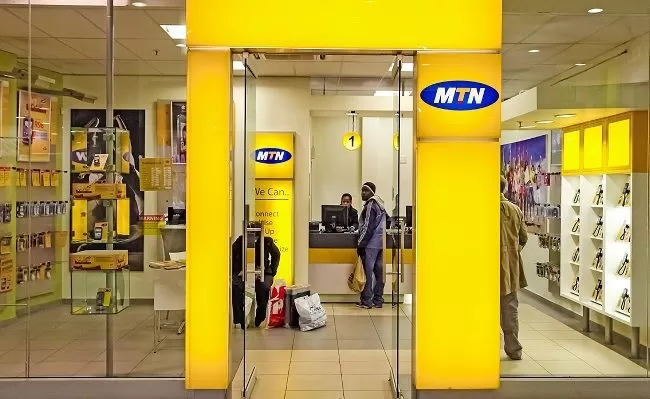MTN Nigeria Users Stranded Amid Persistent Network Disruptions in May 2025

Millions of MTN Nigeria subscribers have been grappling with severe network outages throughout May 2025, leaving users stranded without reliable access to calls, text messages, and internet services. The disruptions, which began around May 5, 2025, have sparked widespread frustration among customers, particularly in major cities like Lagos and across states like Kogi, where the network was reportedly down for nearly two weeks. The Nigerian Communications Commission (NCC) has stepped in, urging telecom operators to improve transparency, while MTN has attributed the issues to multiple fibre cuts and power outages.
A Month of Connectivity Woes
The network issues first gained significant attention in early May when MTN users across Nigeria reported a near-total collapse of services. Social media platforms, particularly X, were flooded with complaints describing the situation as a “complete shutdown.” Subscribers noted that they were unable to make calls, send texts, or access the internet, with some reporting that their data balances were depleted despite minimal usage. Businesses reliant on MTN’s network for transactions, communication, and online operations were hit hard, with many users expressing dismay over the lack of immediate communication from the telecom giant.
In Lagos, Nigeria’s commercial hub, the outages were particularly pronounced. Users reported dropped calls, sluggish data speeds, and poor uplink performance, making activities like livestreaming or video conferencing nearly impossible. One X user lamented, “MTN has been a nightmare this month. No calls, no data, just apologies. My business is suffering.” Similar sentiments echoed across the country, with Kogi State facing prolonged outages lasting up to two weeks, leaving residents and businesses disconnected.
The Cause: Fibre Cuts and Power Challenges
MTN Nigeria has since acknowledged the disruptions, citing multiple fibre optic cable cuts as the primary cause. Fibre cuts, often resulting from construction activities or vandalism, can sever critical network connections, leading to widespread service interruptions. The company also pointed to power outages as a contributing factor, a recurring issue in Nigeria’s telecom sector due to the country’s unreliable electricity grid. These challenges have not been unique to MTN, as other providers like Airtel also reported similar network issues during the same period.
In a public statement, MTN apologized for the inconvenience, particularly to its Lagos customers, and assured users that its technical team was working to restore full connectivity. However, the lack of a clear timeline for resolution has fueled frustration, with many subscribers demanding compensation for lost data and disrupted services.
NCC Steps In
The Nigerian Communications Commission, the country’s telecom regulator, has responded to the crisis by directing MTN and other operators to notify customers promptly about network outages. The NCC emphasized the importance of transparency, urging telecom companies to inform subscribers of disruptions and provide updates on restoration efforts. This directive comes amid growing public outcry over the recurring nature of network issues in Nigeria, where millions rely on mobile networks for communication, financial transactions, and access to digital services.
User Frustration and Economic Impact
The outages have had a significant impact on both individual users and businesses. For many Nigerians, mobile data is a lifeline for work, education, and social connectivity. Small businesses, e-commerce platforms, and freelancers have reported losses due to their inability to process payments, communicate with clients, or maintain an online presence. One user in Abuja shared on X, “I’ve lost thousands of naira because I couldn’t complete transactions. MTN needs to do better.”
The disruptions have also highlighted Nigeria’s broader infrastructure challenges, including the vulnerability of telecom networks to physical damage and power instability. While fibre optic networks have improved internet speeds in recent years, their susceptibility to cuts remains a critical bottleneck. Industry experts have called for greater investment in redundant infrastructure and alternative power solutions to mitigate such disruptions in the future.
Ongoing Uncertainty
As of May 29, 2025, it remains unclear whether MTN has fully resolved the network issues. While some users have reported slight improvements in connectivity, others continue to experience slow speeds and unreliable service. The company has not issued a comprehensive update confirming the restoration of services nationwide, leaving many subscribers uncertain about when normalcy will return.
For now, MTN users are left to contend with intermittent connectivity and the hope that the telecom giant will address the root causes of these disruptions. The NCC’s push for transparency and accountability may pressure operators to act swiftly, but until then, millions of Nigerians remain stranded in a digital limbo.
A Call for Accountability
The May 2025 outages have reignited discussions about the reliability of Nigeria’s telecom sector and the need for robust infrastructure to support the country’s growing digital economy. As MTN and other operators work to restore services, subscribers are demanding not only solutions but also compensation for the inconvenience and losses incurred. With Nigeria’s telecom market being one of the largest in Africa, the stakes are high for MTN to regain the trust of its over 80 million subscribers.
For further updates, users are advised to monitor MTN Nigeria’s official communications or contact their customer service channels. The NCC has also encouraged subscribers to report persistent issues to ensure regulatory oversight and prompt action.






